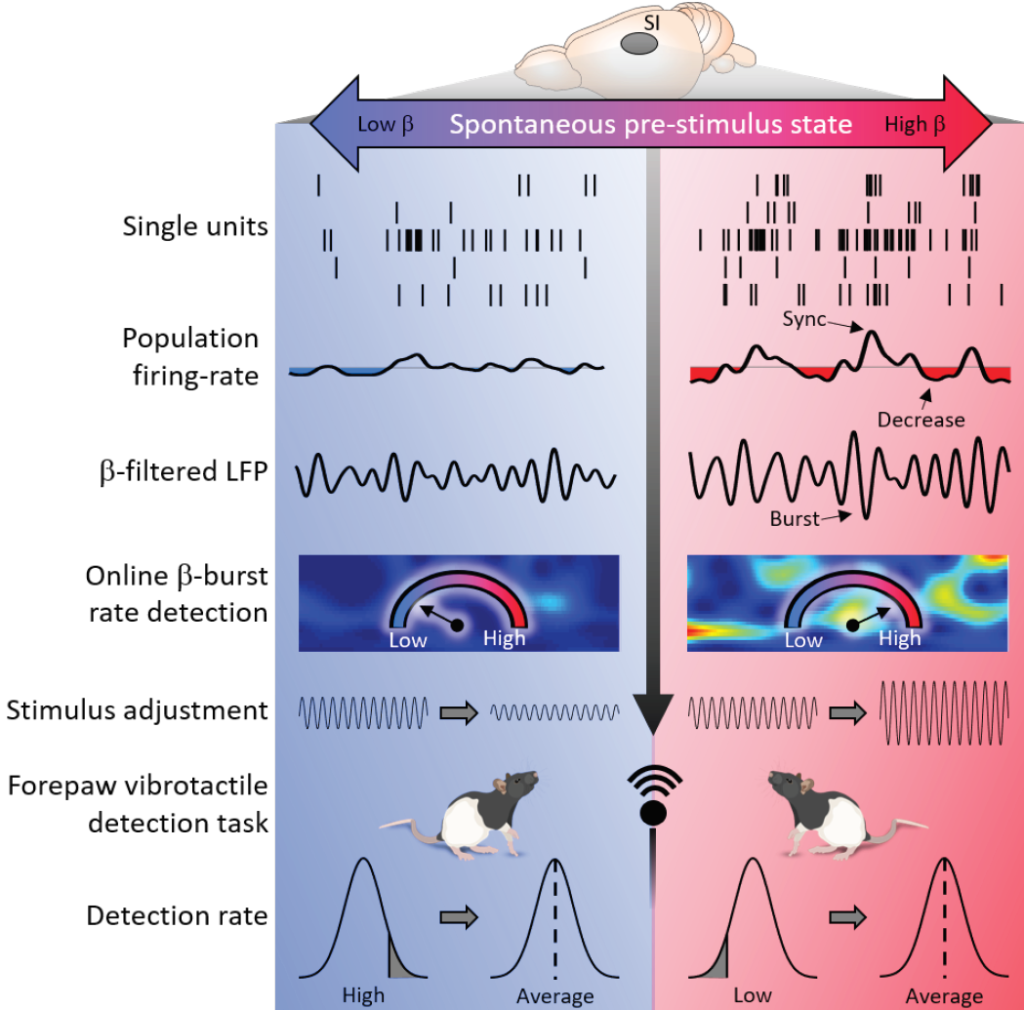Cell-type specific optogenetic manipulation for characterizing the role of inhibitory interneurons in motor cortex of non-transgenic animals
The role for local circuit inhibitory interneurons in shaping the timing and excitability of cortical circuits is well established. Inhibitory interneurons control cellular and network synchronization and output by dictating and coordinating action potential generation. Given the central role for interneurons in the function of the central nervous system it comes as no surprise that loss or dis-regulation of this important cell type has been implicated in cognitive and motor defects.
So far, it has only been possible to reliably target genetic modifications to inhibitory interneurons by applying transgenic animals. Recent progress in gene transfer vector technology has made gene delivery more efficient and also more cell type specific. We aim at generating recombinant viruses that will deliver genes precisely to inhibitory neurons with a special focus on parvalbumin and somatostatin positive neurons. This way, we will make optogenetic manipulations of specific cell types available for non-transgenic animals. Equipped with this new targeting method we aim to investigate the role of inhibitory neurons in generating neural oscillations and controlling movements.


